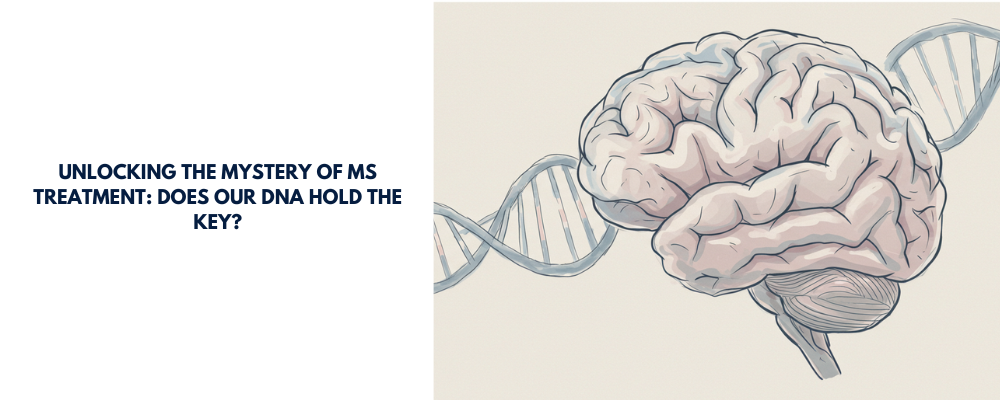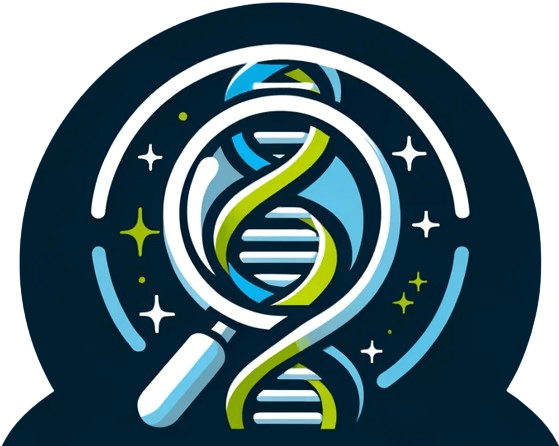Unlocking the Mystery of MS Treatment: Does Our DNA Hold the Key?

Multiple sclerosis (MS) is a complex immune-mediated neurodegenerative disease where the body's immune system mistakenly attacks the protective covering of nerve fibers in the brain and spinal cord. This can lead to a range of neurological issues and progressive disability. Thankfully, we have disease-modifying therapies (DMTs) that can help manage the course of MS by suppressing or modulating the immune system. However, a frustrating reality is that not everyone responds optimally to these treatments, with estimates suggesting that 30 to 50% of individuals don't see the best possible results. This makes it crucial to understand why some people respond well and others don't.
Could our genes hold some of the answers? That's the question a team of researchers in Mexico set out to investigate in a recent study published in the *International Journal of Molecular Sciences*. Their focus was on a specific genetic variant called HLA-DRB1\*0403 and its potential link to how well patients with MS respond to DMTs.
Diving into the Details: The Study Design
The researchers conducted a case-control study involving 105 patients diagnosed with MS at a medical center in Guadalajara, Mexico. To ensure accuracy, all patients met the 2017 McDonald criteria for MS diagnosis and were of Mexican mestizo origin. The study team looked at whether these patients achieved "No Evidence of Disease Activity-3" (NEDA-3) as a measure of their therapeutic response. NEDA-3 is a comprehensive measure that considers the absence of clinical relapses, no progression of disability (measured by the Expanded Disability Status Scale or EDSS), and no new signs of disease activity on MRI scans. Patients who achieved NEDA-3 were considered the "control" group, indicating a good response to treatment, while those who didn't were the "case" group.
The researchers then analyzed the HLA-DRB1\*0403 genetic variant in all participants using a technique called quantitative polymerase chain reaction (qPCR). This allowed them to identify the different versions (genotypes) of this gene variant in each patient.
The Key Findings: Not the Culprit We Expected
After analyzing the data, the study revealed some interesting points. Firstly, a significant majority of the MS patients (86.7%) achieved NEDA-3 with their current DMTs. Regarding the specific gene variant, the most common genotype observed was the wild homozygote (GG) in 50.5% of the patients. The frequency of the "A" allele of HLA-DRB1\*0403 was found to be 32.4% in these Mexican patients with MS, which is notable as it's higher than reported in MS patients from central Mexico in a previous study.
However, the most important finding was that there was no statistically significant difference in the frequency of the HLA-DRB1\*0403 genetic variant between the patients who achieved NEDA-3 and those who did not. This held true even when the researchers looked at different genetic models (dominant and recessive). In simpler terms, the presence or absence of this specific genetic variant did not seem to predict whether a patient would respond well to their DMTs in this group of Mexican individuals with MS.
What Does This Mean for MS Treatment?
This study, to the best of the researchers' knowledge, is the first to specifically investigate the link between HLA-DRB1\*0403 and therapeutic response to DMTs in MS. While previous research has explored the role of HLA-DRB1 genes in the risk of developing MS and sometimes in disease progression, this study focused on treatment outcomes.
The researchers acknowledged that their findings differ from some studies in other populations that have suggested links between certain HLA-DRB1 alleles and either a higher risk of developing neutralizing antibodies to interferon-beta (a common DMT) or a worse prognosis. They also noted that another study found a beneficial response to interferon beta-1a in patients with a specific HLA-DRB1\*04 haplotype. These differences highlight the complexity of MS and how genetic associations can vary across different populations. The current study specifically focused on a Mexican mestizo population, and the results might not be the same in other ethnic groups.
Looking Ahead: The Ongoing Search
The authors emphasized that even though HLA-DRB1\*0403 didn't show an association in their study, the quest to understand the genetic factors influencing treatment response in MS is far from over. They point out that other genes and their interactions, as well as environmental factors, likely play a role. Future research should delve deeper into these complex interactions and explore other genetic variations that might be involved in predicting how well someone will respond to different DMTs.
This study has some strengths, including its use of the stringent NEDA-3 criteria to define treatment response and its analysis of patients treated with various DMTs. However, the researchers also acknowledged limitations, such as the relatively small number of patients in the group that did not achieve NEDA-3. Larger, multicenter studies involving patients from different regions within Mexico are needed to further validate these findings and gain a broader understanding.
In Conclusion: A Piece of the Puzzle
While this particular study found no association between the HLA-DRB1\*0403 genetic variant and the therapeutic response to DMTs in Mexican mestizo patients with MS, it provides valuable information to the ongoing effort to personalize medicine in MS. Understanding the genetic factors that influence how individuals respond to treatment is crucial for optimizing disease management and ultimately improving the lives of people living with MS. The search for these genetic clues continues, paving the way for more targeted and effective treatment strategies in the future.
Disclaimer: This blog post is based on the provided research article and is intended for informational purposes only. It is not intended to provide medical advice. Please consult with a healthcare professional for any health concerns.
Reference:
Gomez-Gaitan, E.A.; Garcia-Ortega, Y.E.; Saldaña-Cruz, A.M.; Contreras-Haro, B.; Gamez-Nava, J.I.; Perez-Guerrero, E.E.; Nava-Valdivia, C.A.; Gallardo-Moya, S.; Martinez-Hernandez, A.; Gonzalez Lopez, L.; et al. Genetic Variant HLA-DRB1*0403 and Therapeutic Response to Disease-Modifying Therapies in Multiple Sclerosis: A Case-Control Study. Int. J. Mol. Sci. 2023, 24, 14594.
